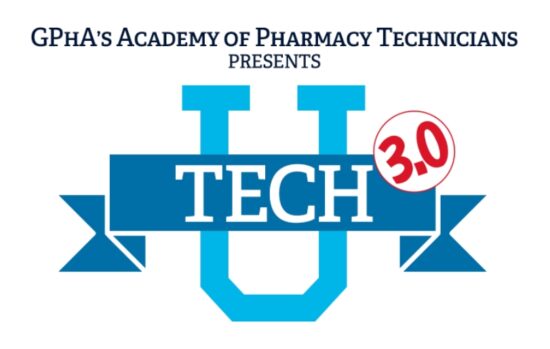Feds scold Lilly, vaccines work day and night, rewriting memories, and more
13 Oct 2022
Posted by Andrew Kantor
Diabetes drugs and dementia
Researchers at the University of Arizona found surprising effects of two diabetes drugs — one good, one bad.
The good news is getting the attention: Thiazolidinediones (e.g., pioglitazone, rosiglitazone) seem to protect people from getting dementia — a 22 percent reduction, in fact, based on the health records of 560,000 people.
The flip side: Sulfonylureas (e.g., glimepiride and a bunch of other gli– drugs) seem to increase the risk of dementia — by 12 percent.
In both cases, the numbers were comparing monotherapy with those drugs with plain ol’ metformin.
Why is this the case? Don’t know … yet. What about newer drugs, like GLP-1 and SGLT2 inhibitors? They weren’t tested. And the big one: Can these drugs be used in the general population? Hard to say, because people with type 2 diabetes are the only ones who are given these drugs, and they haven’t teased out the cause and effect.
Technicians (and those who love them) — listen up!
Are you ready for 2022’s biggest event for Georgia pharmacy technicians?
One low price* gets you breakfast, lunch, 4 hours of CE, a professional headshot, and the networking event at Iron Hill Brewery!
So mark your calendar for November 12 — a day of socializing, networking, and learning — developed by pharmacy techs for pharmacy techs.
Click here or visit GPhA.org/techu for the details!
* Just $35 for GPhA members, $45 for non-members — but early bird registration ends after Wednesday, October 19.
Vaccines: Does time of day matter?
Harvard researchers (in 2021): “[A]ntibody levels are higher when people receive the SARS-CoV-2 vaccine in the afternoon versus the morning.” That’s based on an observational study.
Hokkaido University researchers (in 2022): “[A]ntibody response to the Moderna Covid-19 mRNA vaccine does not vary depending on the time of day when the dose was received.” That’s based on a study study.
Takeaway: None whatsoever.
Conflicting results between studies could be explained by various factors, including differences in sex, age, physical activity, and natural immune system, the type of vaccine received, number of days after vaccination, and differences in vaccine dose.
Boosters approved for the little ones
Bivalent Covid boosters — aka, Omicron boosters — are now FDA-authorized and CDC approved for children down to 5 years old. This includes both Pfizer and Moderna shots.
Of note: This means Pfizer’s monovalent vaccine “will no longer be allowed for administration as a booster dose for children between 5 and 11 years.”
“I would say they do not take quality seriously”
When a problem is found in a batch of drugs — let’s say “unknown debris” and let’s say it was at an Eli Lilly plant in New Jersey — the questionable batch is supposed to be 1) checked by quality control, 2) shipped to customers or discarded, and 3) documented.
Apparently someone was doing 2 before 1, and sometimes ignoring 3 altogether. And the FDA is not thrilled, although it hasn’t announced any enforcement actions yet (nor said what happened to those potentially bad batches, which included Cyramza, Emgality, Erbitux, and Trulicity.
The company would only say that it has “rigorous quality systems in place to ensure compliance with stringent regulatory requirements.” Perhaps not rigorous enough.
More details of long Covid
Yet another study — this one particularly large — found that long Covid has serious effects on 5 percent of people after recovering from, er, ‘main’ Covid.
More notably, 42 percent of Covid sufferers are still not recovered after 18 months, according to the Scottish research, which included almost 100,000 patients.
At most risk: women, older people, “those who live in economically disadvantaged communities,” and people already suffering from respiratory or mental health issues.
At least risk: asymptomatic people and those who were vaccinated.
MRSA killer
Ever antibiotic-resistant MRSA can’t stand up to the power of AHA-1394, a new compound (a synthetic polyamine) that “seems to destroy Staphylococcus aureus…”
…including some [strains] that are known to be resistant to vancomycin — the final drug of choice given to patients fighting an MRSA infection. The compound was completely successful against all strains, resulting in no further bacterial growth.
Even better (say the Brits who discovered it), AHA-1394 also makes the bacteria vulnerable to older antibiotics, requires a very low dose, and doesn’t seem to be toxic to humans.
Weird science: Rewriting bad memories
Boston University researchers have an … interesting idea for treating treatment-resistant depression and PTSD: They want to rewrite bad memories, replacing them with good ones.
They’ve found where the brain stores positive and negative memories, and they found that the two emotions are physically distinct — they’re stored in different places, and they even have different “molecular machinery.”
Using lasers (really) they can activate positive memories, and doing so “permanently rewrote a negative experience, dialing the emotional intensity of the bad memory down.” (Neutral memories also work, but if you’re gonna do some rewriting, might as well use the good stuff.)
The actual techniques that work on mice (lasers on an exposed brain) won’t work for humans, but they’re exploring other ways — as simple as talk therapy, possibly augmented with microdoses of MDMA. Or maybe bring out the fancy machines:
[I]t could eventually be possible to stimulate large swaths of the hippocampus with tools like transcranial magnetic stimulation or deep brain stimulation.
Rewriting memories could be a powerful tool. Who knows? You might someday be able to replace your sad memory of Nelson Mandela dying in prison with a memory of your parents reading to you from the Berenstein Bears*.
* “I’ll take Obscure References for $400, Alex.”



